
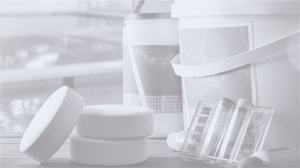
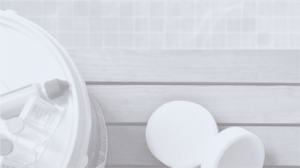
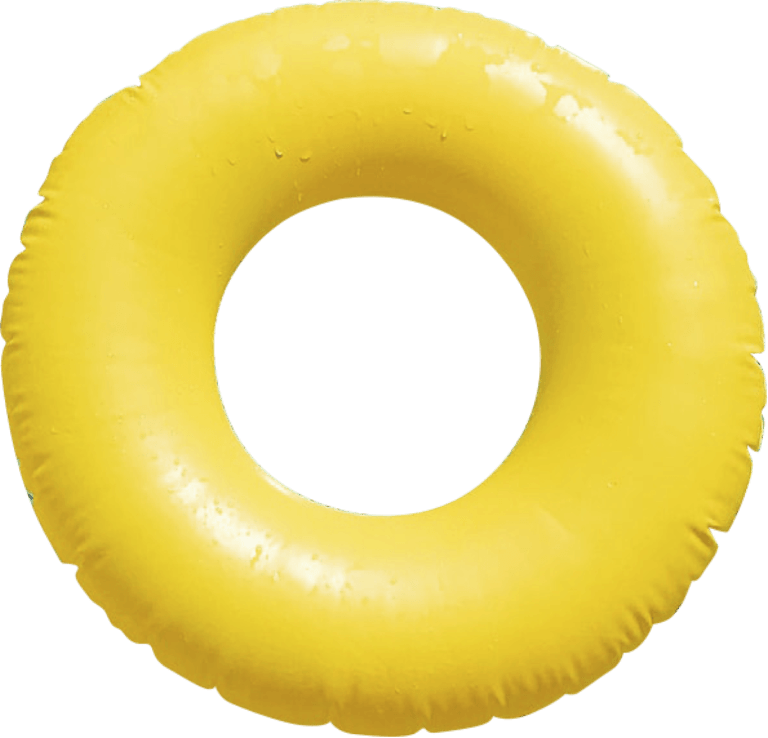
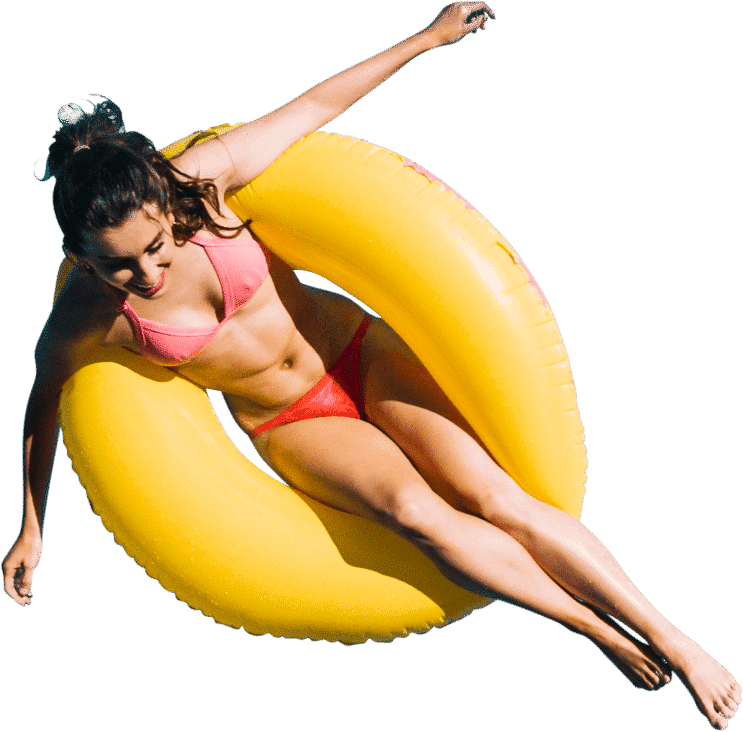

The invisible dirt is made up not only of bacteria, which can multiply very rapidly and cause problems, but also algae and fungi of various kinds which spread to the pool, where they find the conditions pleasant. Chemical agents are used to combat and control these.
Is a white powder or granular Alkali substance, refined from the mineral used to Increase the pH of the pool water? Most commonly found in powder form, but available in liquid too.
Is a white powder or granular mild Acidic substance, refined from the mineral used to Lowers the pH of the pool water rapidly while lowering alkalinity slightly? Most commonly found in powder form, but available in liquid
Is a white powder or granular mild Alkali substance, refined from the mineral used to raises the Alkalinity of the pool water with little to no adjustment to ph. Most commonly found in powder form, but available in liquid too.
Acid lowers pH while also lowering Total Alkalinity, so pH will need adjusted once the Alkalinity has been treated.
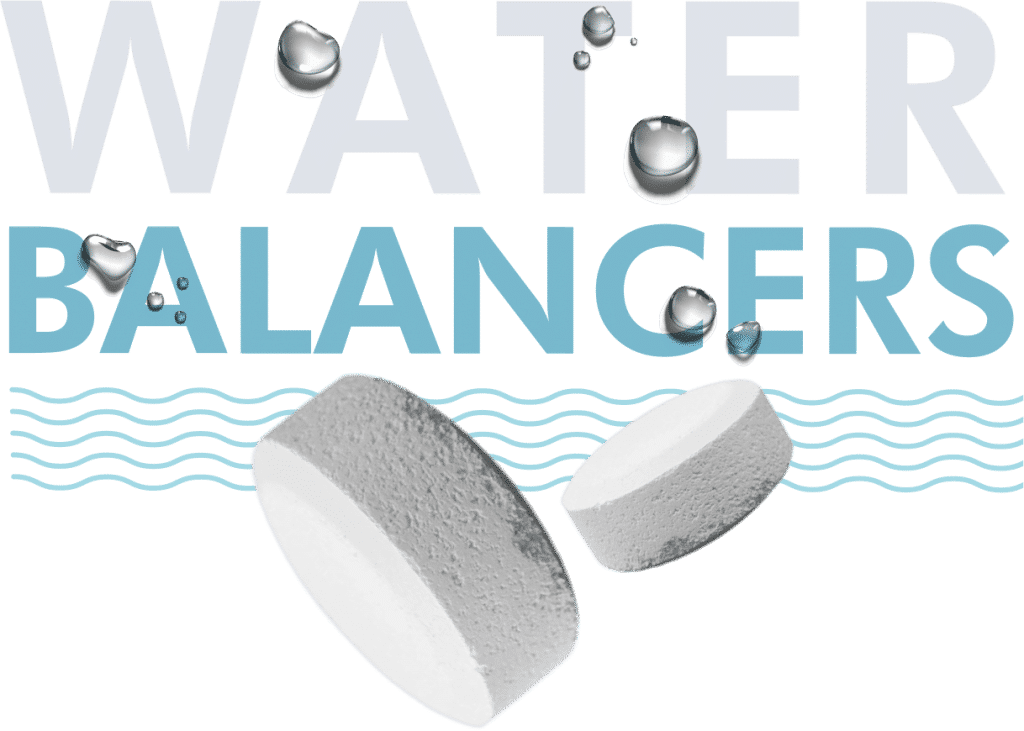
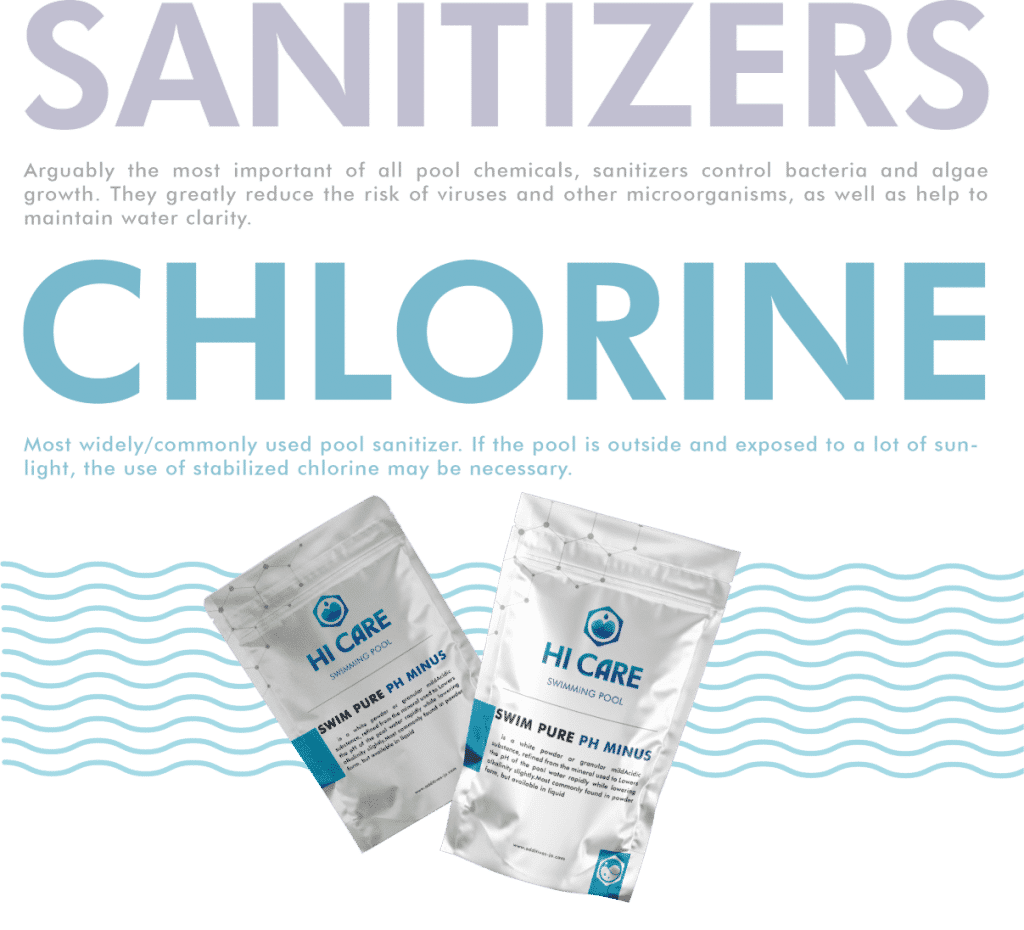
Available in granular and tablet form with stabilizer.
Slow dissolving found in tablet and granular form, but the granular is primarily used for shock treatment.
Liquid form of chlorine ranging in strengths of 6%-12%. Preferred in higher strengths as oppose to household bleach, which is around a 1-2% solution. High pH of near 13.0fastest acting form of chlorine making it a powerful choice for algae treatment. On-stabilized, and will dissipate rapidly in UV light.
Is a white powder or granular slightly Acidic substance, helps to keep chlorine from breaking down in UV light? This chemical is used with calcium hypochlorite granular and tablets.
Available in tablet and granular form. Considered to be softer on swimmers than chlorine. Is very sensitive to UV light so it dissipates quickly if the pool is exposed to a lot of sun. Due to the need for constant replenishment, a pressurized feeder called a brominator should be used to slowly supply the pool with bromine. Although expensive in comparison, bromine is more effective at killing algae than chlorine and is just as effective at killing bacteria.
The most common algicide used in pools. Also known as “Quits”, this type of algicide is great for maintenance and light algae growth. Found in liquid form in varying concentrations. If overdosed, it can cause foam on top of the pool water, which can increase with agitation, so be sure to follow the instructions on the bottle correctly.
Used primarily for stubborn or existing algae growth. Does not cause foaming. More expensive than “quats” but better at killing and preventing algae. Usually found in concentrations of 50%-60%.
Effective against algae, improper dosing or imbalanced water can cause permanent staining on pool surfaces. Use these pool chemicals with caution. Used primarily for stubborn or persistent algae growth.
Free flowing white granules with limited water solubility Inhibits algae growth by affecting its ability to process carbon dioxide. Considered to have multiple benefits including reduced sanitizer use, reduced skin and eye irritation, and improved water clarity. Measurable and considered to be most effective in ranges of 30-50ppm.
One of the most effective pool chemicals for fighting mustard and black algae. Compatible with chlorine and bromine. Commonly called Mustard Algae Treatment, Black and Mustard Treatment, Yellow Treat, and others.
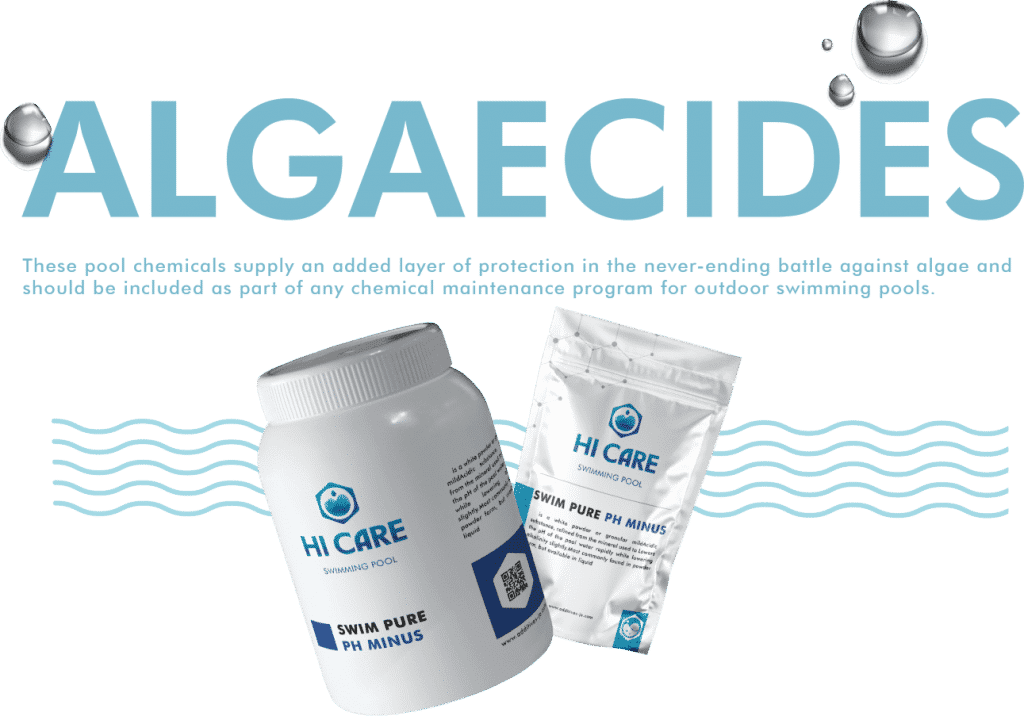
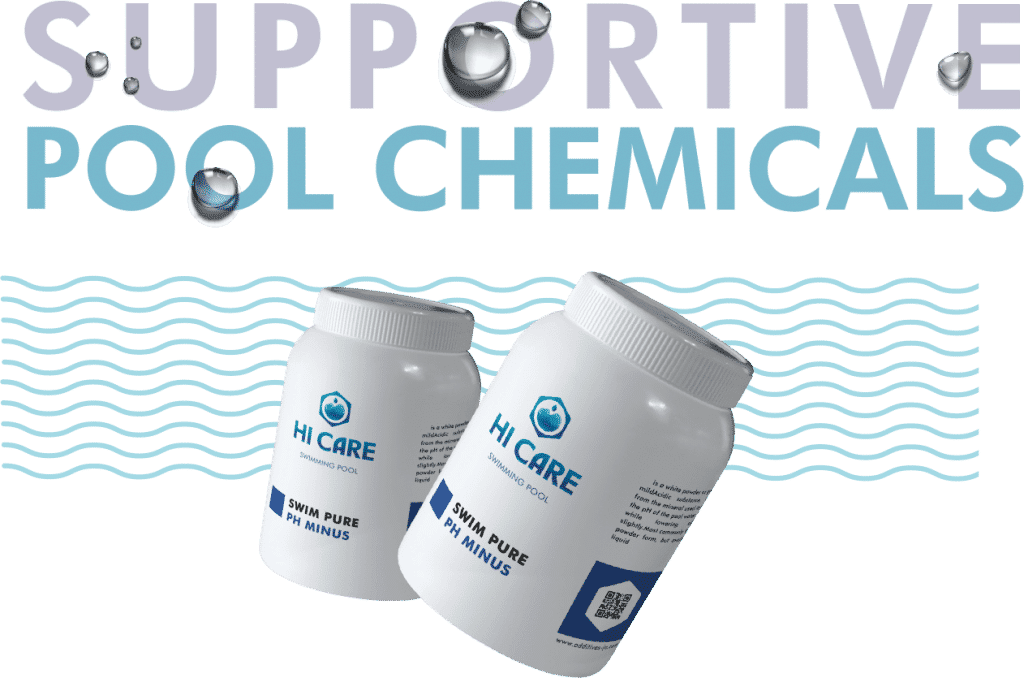
Help to clear cloudy water by causing suspended particles to coagulate or cling together, making it easier for the filter system to catch them. Can be added to a pool on a weekly or “as-needed” basis.
Deactivates unwanted levels of Iron, Copper, and other metals in an effort to prevent staining and water discoloration. Often used after a significant level of water has been added that contains unwanted metals.
Similar to metal removers in that it controls stains caused by minerals in the water. Prevents the formation of scale caused by high Hardness levels in the pool water. Often used in weekly maintenance doses to protect equipment and pool surfaces.
No matter what kind of pool you have, it’s very important to have a properly functioning pool skimmer. its key role is to keep the surface of the pool water clean from debris such as leaves, insects, pollen, bugs, etc. The skimmer is where water leaves the pool before arriving at the pump and filter.Skimmer is also used as a vacuum hose connection for the pool vacuum to keep the pool clean.
